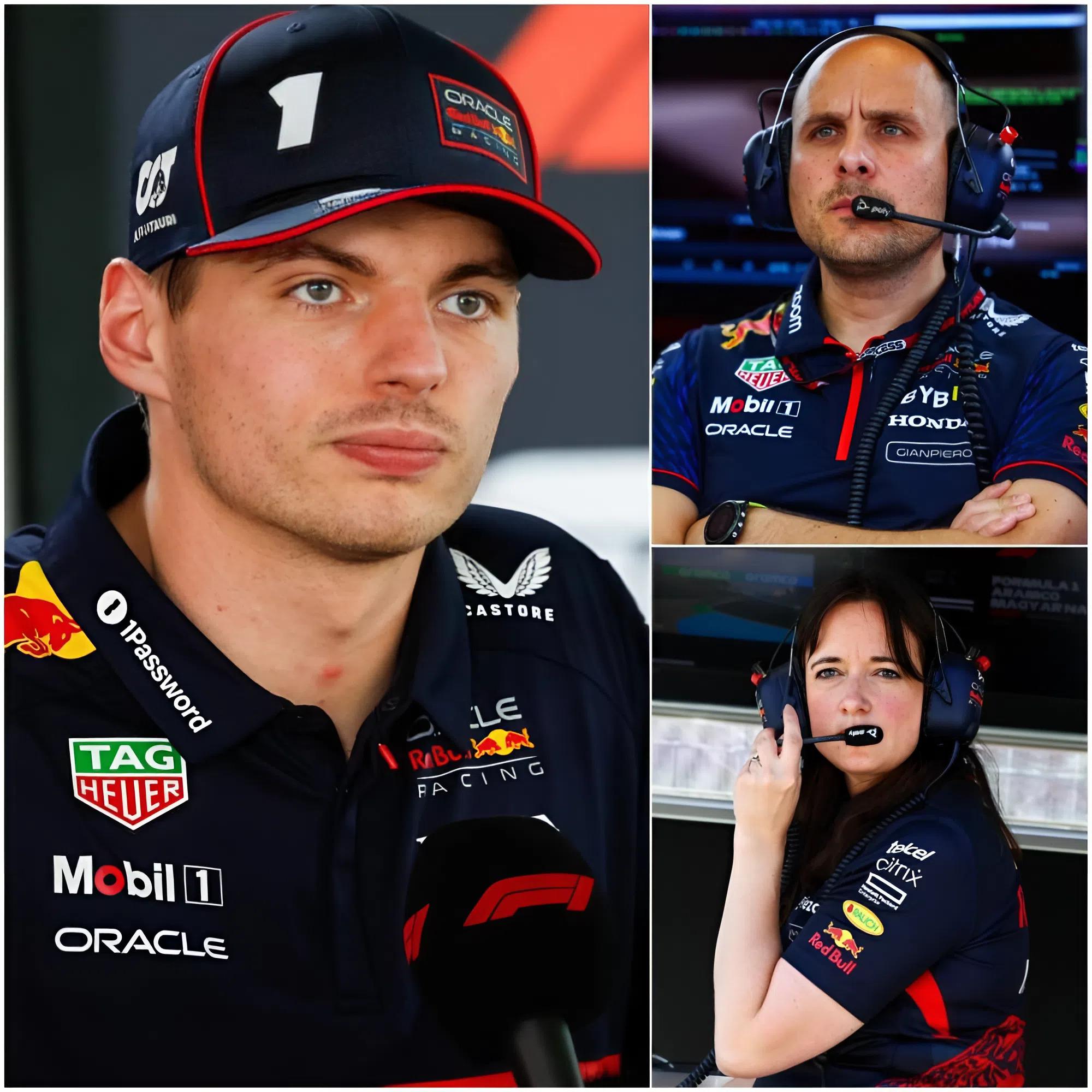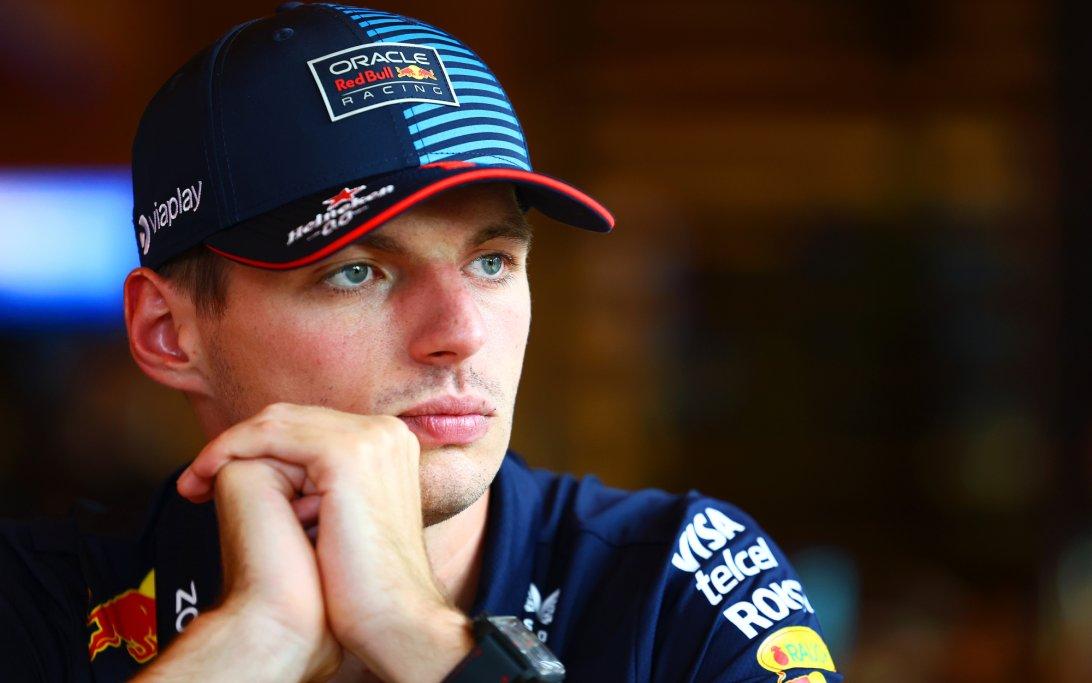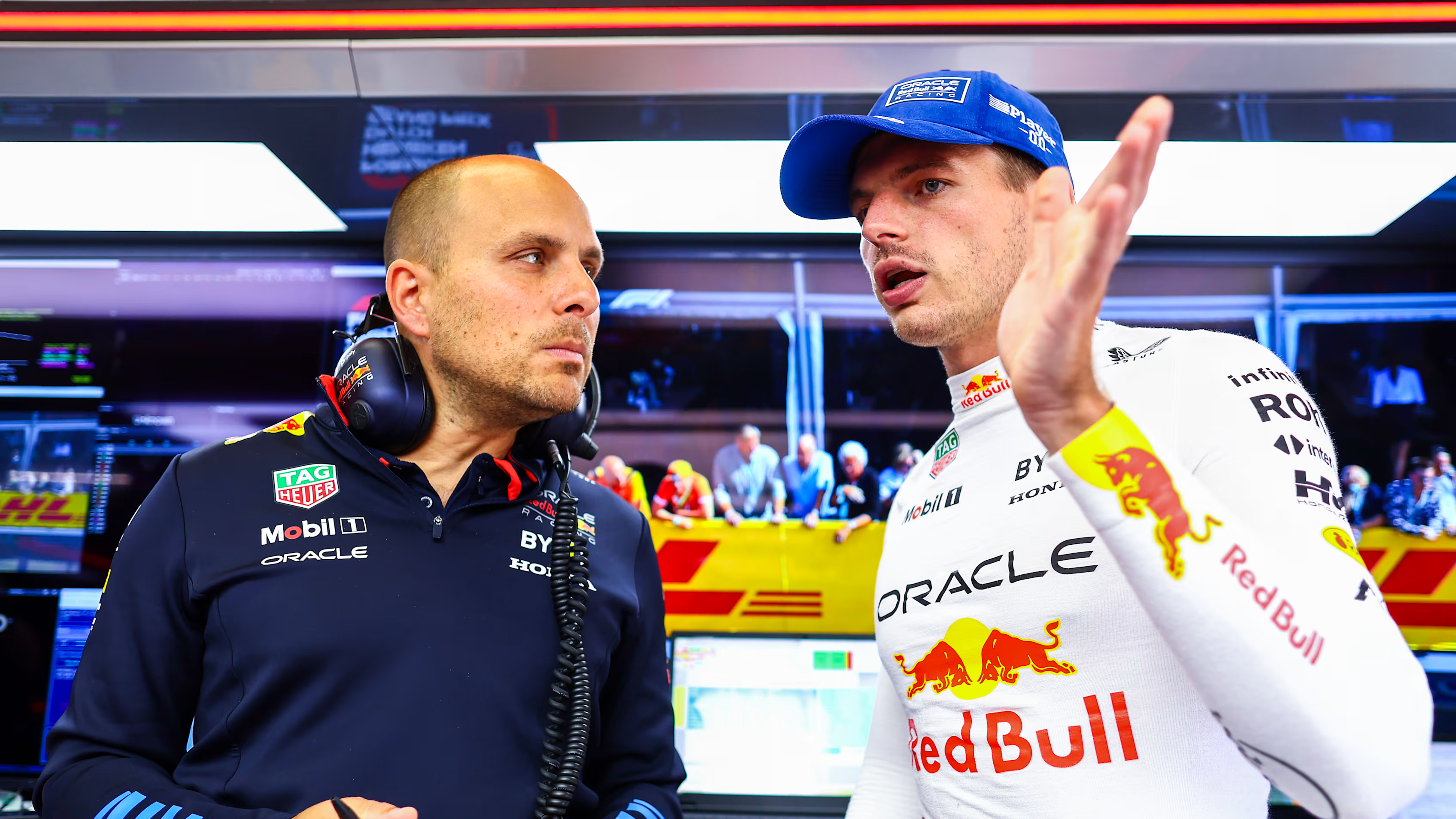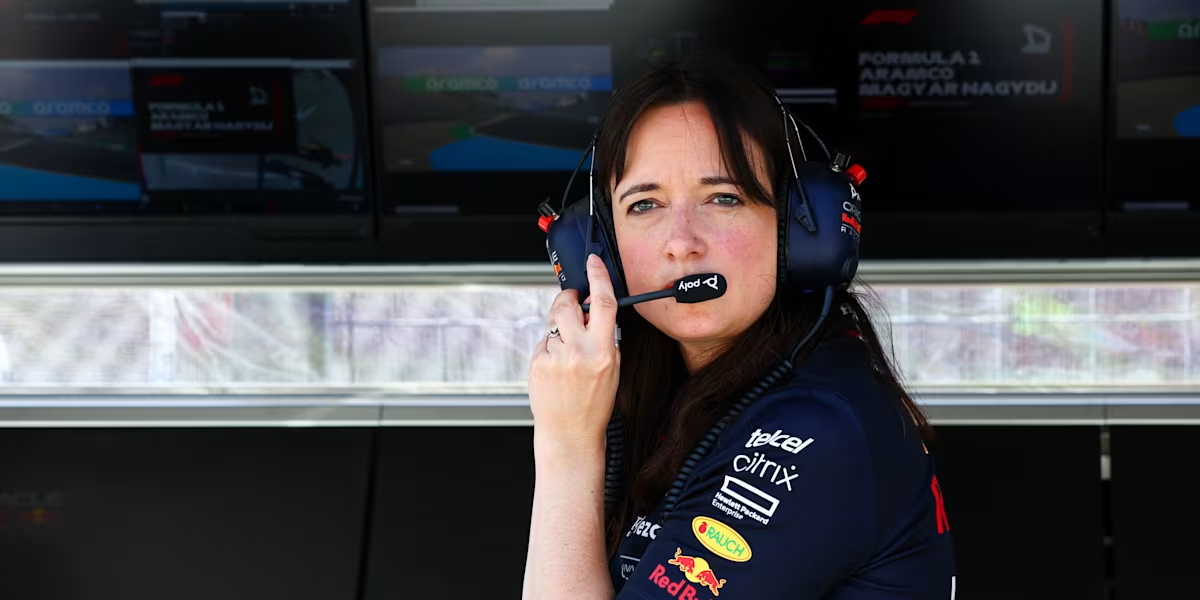The Formula 1 paddock is abuzz with growing speculation and concern as Red Bull Racing, once a seemingly invincible powerhouse, begins to show signs of instability. Amid internal political turmoil, leadership changes, and increasingly erratic race strategies, rumors are mounting that Max Verstappen—the three-time world champion—is seriously considering a future outside Milton Keynes.

What makes this speculation even more shocking is the belief that Verstappen won’t be left alone. Sources close to the paddock suggest that, should Verstappen make the shock move to a rival team, he would insist on taking two of Red Bull’s most crucial talents with him: Gianpiero Lambiase, his regular race engineer, and Hannah Schmitz, the team’s highly respected chief strategist.
Gianpiero “GP” Lambiase has been Verstappen’s voice for nearly a decade – a partnership crucial to Red Bull’s recent dominance. Known for his level-headed communication and tactical clarity during high-pressure races, GP is considered by many insiders to be irreplaceable to Verstappen’s success. Their radio interviews, often tense but always constructive, have become a defining characteristic of Red Bull’s racing career.

Hannah Schmitz was also the strategic mind behind many of Red Bull’s most brilliantly executed victories. Her calm demeanor under pressure and her precise decision-making in real time have earned her widespread admiration in the motorsport world. It is widely acknowledged that without Schmitz’s guidance, several of Verstappen’s victories—including crucial moments that decided the championship—might have turned out very differently.
However, the growing dysfunction at Red Bull threatens to undo years of excellence. Rumors of dissatisfaction among key technical personnel, the unresolved controversy surrounding team principal Christian Horner, and the departure of senior engineers have all contributed to the growing sense that the Red Bull dynasty is under attack from within.

This climate has led some observers to draw parallels with previous collapses in Formula 1 history, where dominant teams crumbled under the pressure of their own success. “Red Bull is starting to look like a broken empire,” observed one paddock insider. “If they lose Verstappen, they won’t just lose a driver, but an ecosystem that wins championships.”
For Verstappen, who is under contract until 2028, the thought of leaving is no small feat. But performance, not loyalty, often drives decisions at the highest level of motorsport. Should Red Bull fail to resolve its internal crises and fall behind in the development of its cars, the Dutch superstar may feel compelled to secure his legacy elsewhere.

In such a scenario, the arrival of Lambiase and Schmitz would be more than a gesture of loyalty – it would be a strategic move to move a winning formula to a new environment. Teams like Mercedes, Aston Martin, or even Audi (which will enter Formula 1 in 2026) could offer Verstappen a fresh start, provided they are willing to accommodate his entire technical team.
As Formula 1 fans await further developments, one thing is clear: the future of Red Bull Racing—and potentially the balance of power in Formula 1—is at stake. Should the ship indeed sink, Verstappen is preparing to set course elsewhere, and he won’t be sailing alone.





